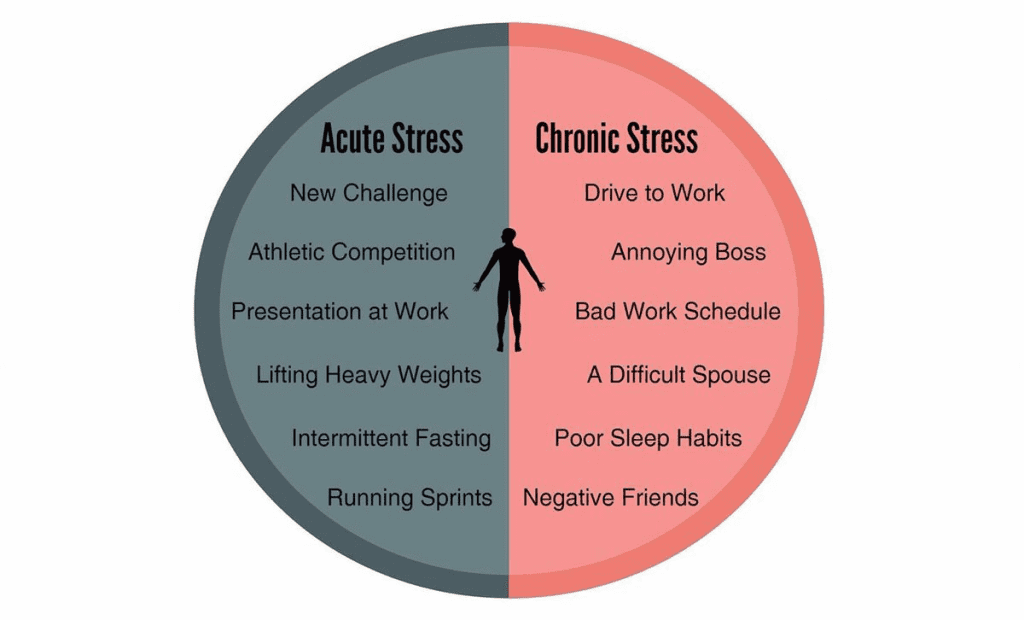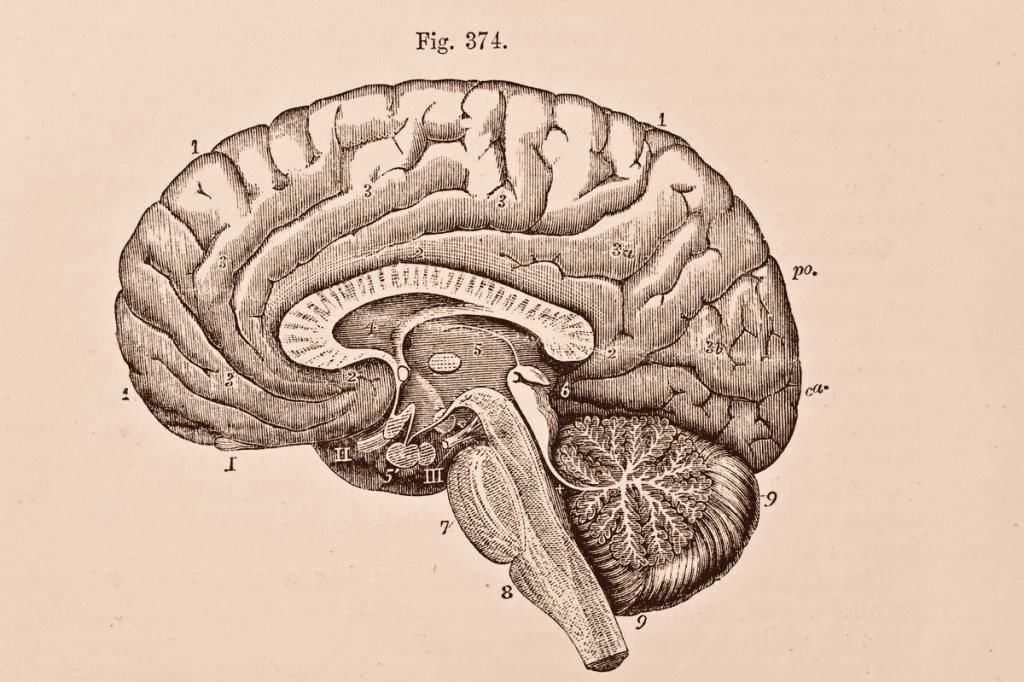Let’s face it—stress is everywhere. Whether it’s a tight deadline, relationship tension, financial pressure, or just daily chaos, stress finds a way to sneak into our lives. We often think of stress as a mental or emotional challenge, but the truth is, it impacts nearly every system in your body—and sometimes, in ways you don’t even notice.
If you’ve ever had a headache after an argument, felt butterflies before a big event, or couldn’t sleep because your mind was racing, you’ve already experienced how stress physically affects you. But the real danger comes when stress becomes chronic. Let’s explore exactly how stress impacts your body—and what you can do about it.
Understanding Acute vs. Chronic Stress

Before diving into the damage, it’s important to know there are two main types of stress:
- Acute stress is short-term. It’s your body’s immediate reaction to a specific threat or challenge—like slamming the brakes or preparing for a speech.
- Chronic stress is long-term. It lingers when stressors don’t go away, like an unhappy job, caregiving burdens, or financial strain.
While acute stress usually passes, chronic stress can silently erode your health over time.
How Acute Stress Triggers the Fight-or-Flight Response
The moment your brain senses danger, it flips the switch on your sympathetic nervous system. This ancient defense mechanism, known as the fight-or-flight response, floods your body with stress hormones like adrenaline and cortisol. Here’s how your body reacts:
- Muscle tension: Your muscles tighten, preparing to fight or flee.
- Rapid breathing: You may hyperventilate as your lungs try to get more oxygen.
- Increased heart rate: Your heart pumps harder to supply muscles with blood.
- Sweating: Your body tries to cool itself as your metabolism spikes.
- Digestive issues: Nausea, bloating, or sudden bathroom runs are common.
- Dry mouth: Blood is diverted away from digestion and into survival mode.
In most cases, these symptoms subside quickly once the threat is gone. But if stress is extreme—like the loss of a loved one—it can lead to rare conditions like stress-induced cardiomyopathy (aka broken heart syndrome), where the heart’s main chamber temporarily weakens under emotional pressure.
Video : How stress affects your body – Sharon Horesh Bergquist
The Long-Term Effects of Chronic Stress on the Body
While occasional stress isn’t harmful, chronic stress keeps your body in a constant state of alert, which wears down vital systems over time. Let’s break down the key areas where long-term stress wreaks havoc.
1. Inflammation: The Silent Trigger Behind Chronic Illness
Chronic stress activates the immune system unnecessarily, increasing inflammatory cytokines. These are chemical messengers meant to fight infection—but when overproduced, they spark low-grade, long-lasting inflammation that contributes to:
- Heart disease
- Diabetes
- Autoimmune disorders
- Chronic pain
This connection between stress and inflammation is one reason mindfulness practices like meditation show measurable benefits—they lower inflammation markers.
2. Gut Health and Digestive Disorders
Your gut is packed with nerve endings and immune cells, making it extremely sensitive to stress. Ever felt butterflies before a date or nausea before a presentation? That’s the stress-gut connection at work.

Long-term stress can cause or worsen:
- Acid reflux
- Irritable bowel syndrome (IBS)
- Inflammatory bowel disease (IBD)
- Appetite loss or binge eating
Stress changes how your gut digests food and absorbs nutrients—and may also disrupt the gut-brain connection, leading to even more issues over time.
3. Weakened Immune Function
One of the most documented effects of stress is how it suppresses the immune system. When you’re under constant pressure, your body produces fewer infection-fighting white blood cells, making you more likely to catch:
- Colds
- Flu
- Other infections
Stress doesn’t just make you sick—it keeps you sick longer.
4. Changes in Brain Structure and Cognitive Function
Stress doesn’t just affect your mood—it changes your brain. Long-term exposure to stress hormones shrinks the prefrontal cortex, which affects decision-making, focus, and memory.

At the same time, it increases activity in the amygdala, the brain’s fear center, making you more anxious and emotionally reactive.
The result?
- Poor concentration
- Memory lapses
- Brain fog
- Increased risk of anxiety and depression
5. Pain Sensitivity and Chronic Muscle Tension
When stress tightens your muscles and doesn’t let go, it leads to:
- Tension headaches
- Neck and shoulder stiffness
- Lower back pain
- Migraines
Stress also amplifies pain perception, meaning a minor ache can feel like a big problem. It turns up the volume on pain signals in your brain.
6. Sleep Disruption
Stress and sleep have a complicated relationship. When stress is high, sleep suffers. When sleep is poor, stress builds up even more. It’s a vicious cycle.
Lack of sleep can lead to:
- Weakened immunity
- Mood swings
- Fatigue
- Decreased productivity
Good sleep hygiene is essential for breaking this cycle and helping your body reset.

7. Reproductive and Sexual Health
Chronic stress can seriously impact hormones that control your reproductive system. In women, it may cause:
- Irregular menstrual cycles
- Painful periods
- Difficulty conceiving
- Mood changes during pregnancy or postpartum
In men, it can reduce testosterone levels, leading to:
- Low libido
- Erectile dysfunction
- Reduced sperm production
Stress doesn’t just affect how we feel—it impacts our most intimate experiences too.
8. Weight Gain and Metabolic Disruption
Stress often leads to poor eating habits—whether it’s skipping meals or reaching for comfort food. But cortisol, the main stress hormone, also stimulates fat storage, especially around the belly.
Over time, this leads to:
- Increased risk of obesity
- Insulin resistance
- Type 2 diabetes
- Heart disease
Your body sees stress as a survival threat—and holding onto fat is its way of “protecting” you.

Can Stress Cause Cancer? The Complicated Truth
Research on whether stress directly causes cancer is still inconclusive. Some studies have found links between stress and certain cancers, while others have not. However, what’s clear is this:
Stress leads to unhealthy coping behaviors—like smoking, drinking, overeating, and inactivity—all of which increase cancer risk.
So while stress itself may not be a direct cause, it often plays a role in the bigger picture of long-term disease.
How to Manage Stress Before It Manages You
Stress is inevitable—but how we respond to it makes all the difference. Here are some proven ways to break the stress cycle:
- Exercise regularly: Even a brisk walk can boost endorphins.
- Practice mindfulness or meditation: These help calm your nervous system.
- Get quality sleep: Stick to a consistent bedtime and turn off screens early.
- Eat a nourishing diet: Avoid caffeine and sugar spikes when you’re under pressure.
- Connect with others: Social support is a powerful stress buffer.
- Try journaling: Writing helps process emotions and reduce anxiety.
- Seek professional support: If stress overwhelms you, talk to a therapist.
Video : Beyond Stress and Anxiety: How Stress Affects the Body and What You Can Do to Manage It
Conclusion
Stress might be a part of life, but it shouldn’t take control of yours. While acute stress is manageable and often temporary, chronic stress can quietly chip away at your physical and emotional well-being—leading to real, long-term health issues.
By learning to recognize the signs, taking care of your body, and making space for your mental health, you can take back control and live a healthier, calmer life.


